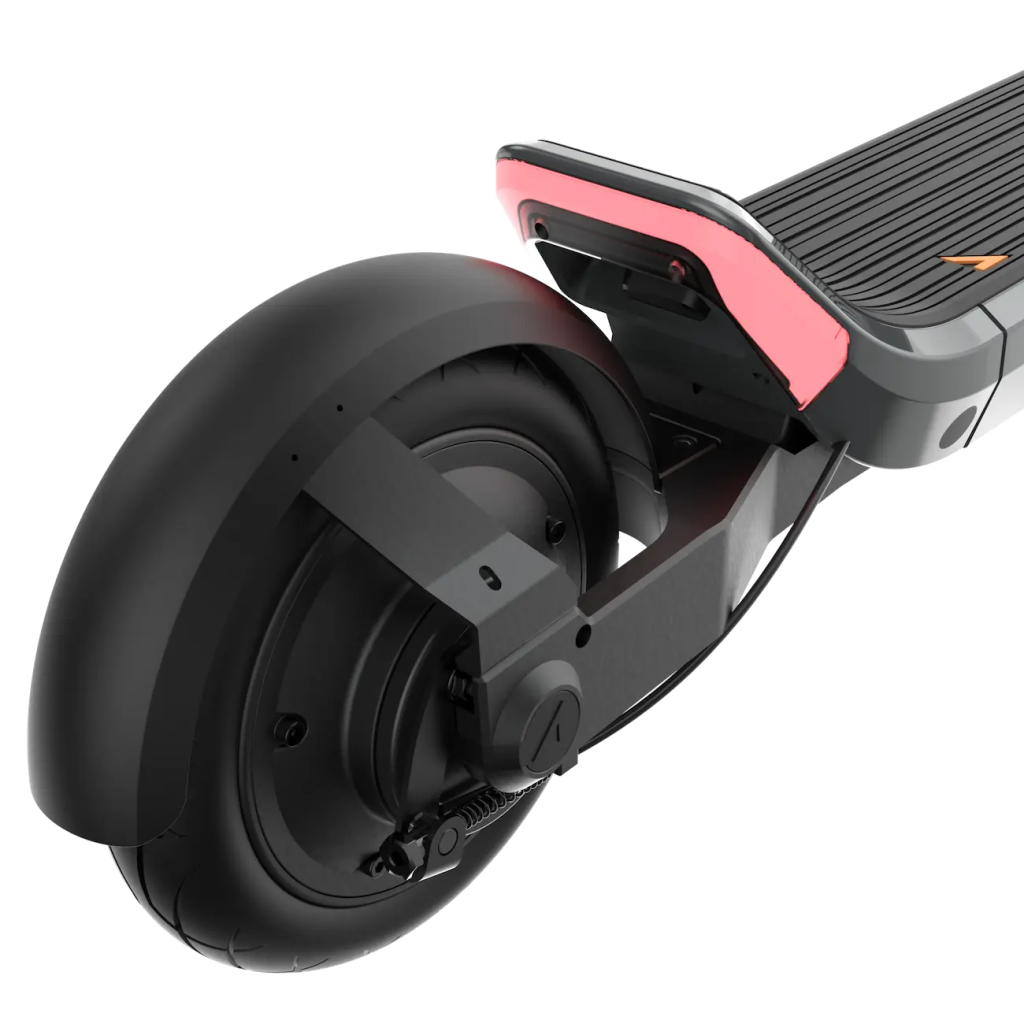
You may be more familiar with Apollo’s fancier electric scooters, which the Canadian company has designed largely from the ground up, eschewing traditional industry practices of compiling a hodge-podge of off-the-shelf parts. But the company’s newest model, the Apollo Go, is shedding some serious poundage in an attempt to become the best portable, entry-level scooter that still packs a punch.
For those who don’t have $3,000 in their pocket for a flagship electric scooter that can leave cars in their dust at traffic lights, the Apollo Go is still quite appealing.
Fast speeds of 28 mph (45 km/h) make this much more than a neighborhood scooter, and a pair of motors rated at 350W but peaking at 750W each can put a total of two horsepower under your boots.
The 36V 15Ah battery isn’t particularly large by comparison to Apollo’s more imposing models, but its 540 Wh of capacity is still plenty for most commuters and helps to keep the scooter’s weight down to just 46 lb (20.8 kg). Considering the last electric scooter I reviewed weighed nearly twice as much, that’s really saying something!
I’m not going to carry it across campus, but taking it up a flight or two of stairs on a daily basis is manageable.

Despite the relatively low weight, the Apollo Go still offers impressive performance. The dual motors help the scooter climb inclines as steep as 25% while also providing powerful regenerative braking when coming back down the other side of the hill. The dual motors are also complemented by dual suspension, giving the folding scooter a much better ride than rigid or single-suspension entry-level scooters.
Dual motors, dual suspension, and powerful hill-climbing aren’t rare in the scooter industry, but seeing those specs on low-cost and relatively portable scooters is certainly a rarity.
Add in other features like self-healing tires, 360º surround LED lighting, IP66 waterproof rating, UL compliance, and fully enclosed braking from a combination of drum and motor brakes, and you’ve got a seriously impressive ride for just $1,099. That’s the sale price during launch, though the MSRP does tack another $100 on top. The scooter was unveiled today, but it looks like pre-orders actually open on February 20, so you’ve got another two weeks to wait.
Compared to other entry-level electric scooters on the market, the Apollo Go seems to offer either more power, better suspension, a lower price, or sometimes all three.


Electrek’s Take
I’ve ridden a lot of electric scooters, big and small. From tiny little things that look like they could send you over the bars by hitting a No 2. pencil in the road, to massive 100+lb mega scooters.
But I’m not sure I’ve seen another combination of performance versus weight that could best the new Apollo Go. Just from the spec sheet, it’s already impressive. But knowing that it’s full of Apollo’s special sauce that helps differentiate their rides from the cookie-cutter alternatives gives me a lot of confidence as well.
I haven’t actually ridden an Apollo Go yet, but it sounds like I’ll be putting self-healing rubber to the road on one soon, after which you can be sure I’ll report back!
FTC: We use income earning auto affiliate links. More.



Comments